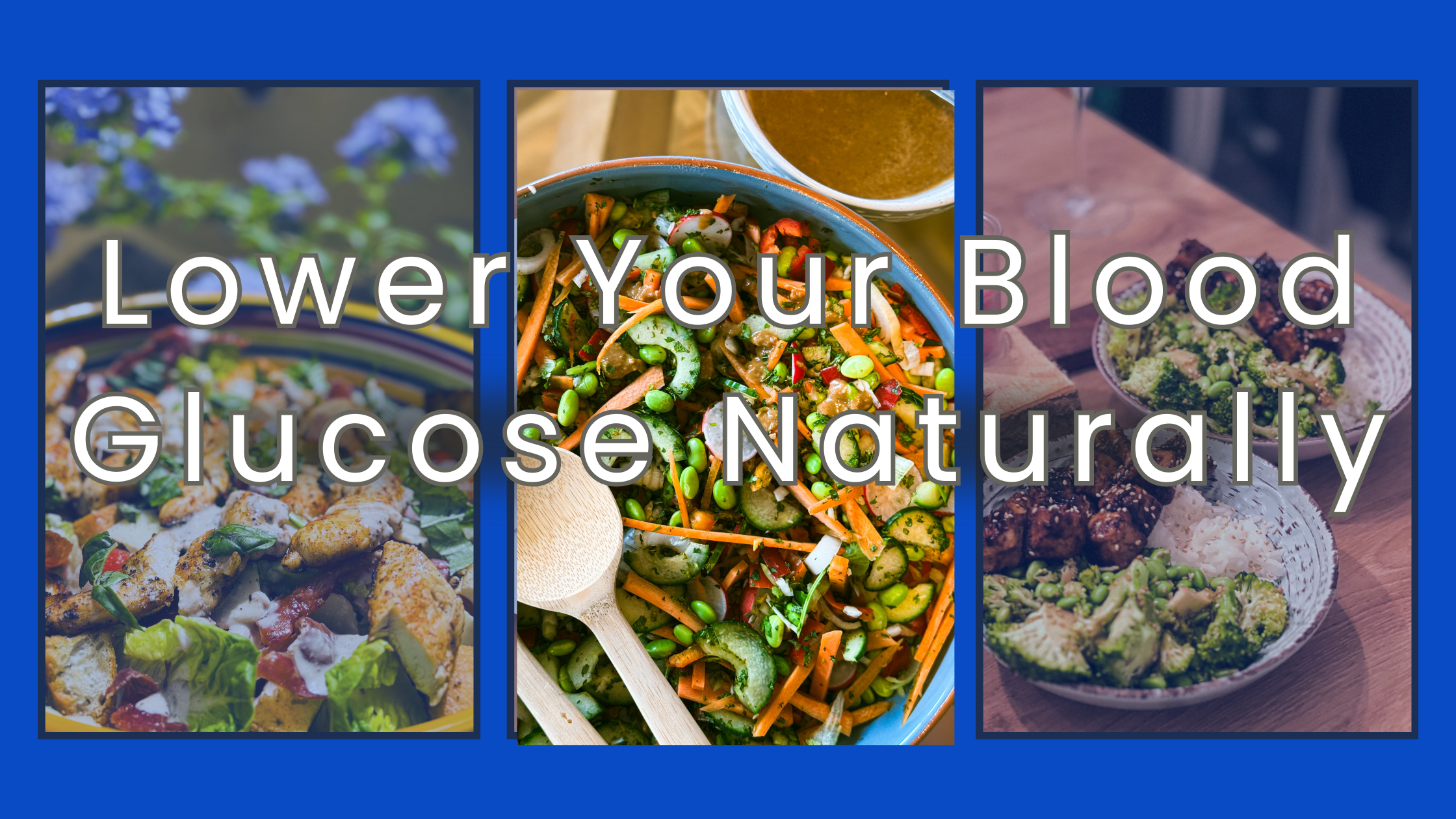Lower Your Blood Glucose Naturally
Each year that goes by, I feel like people are becoming more and more health conscious which is great and will only encourage ageing healthily. But at the same time it can be overwhelming to try and take everything on board.
I have really pivoted my training and nutrition to what can I do today to just keep me helping ageing the best and healthiest I can! So I thought a fun little series would be over the next few months to dive into all these “health” things we are told we need to do, simplify them and look at how we can easily take action.
Something that will be clear by the end of this series is that if you follow the 80/20 rule in everything (exercise, nutrition, work/life balance) you most likely will not need to look into the details of anything the internet/social media is throwing at you because your habits are already healthy and balanced.
You will see by the end that in order to age the best you can and healthiest you can you will need to focus on:
A mostly whole food diet trying to get a variety of different fruits, vegetables, carbs, protein and fats in each each week. (different foods give us different vitamins and minerals)
Manage your stress
Priortise sleep
Drink enough water
Moderate alcohol and highly processed foods
Keep active day to day
Do structued exercise 3-5 times a week, a combination of strength, cardio and mobility; ensuring that you are recovering properly from sessions!
This month I though we will look into blood sugar levels, why they are important and easy ways we can ensure we are keeping them balanced.
Being aware of our blood sugar levels have had a little rise in popularity. Whilst in one sense it’s just another things we need to think about I do believe this new focus is in part due to the rise in highly processed foods that have a higher chance to spike our blood glucose than if we were to just eat a balanced whole food diet.
So I think most people here in Switzerland lead a pretty healthy lifestyle and this is not something we need to overly stress about! But lets be honest there is not harm to look at why blood spikes can have a negative impact on our health and what are some easy actionable things we can do to improve this!
So what are the negatives to consistently high blood glucose spikes:
1. It can cause irregular menstrual cycles. Excessive sugar consumption can exacerbate PMS symptoms such as cramps, mood swings, irritability, and depression. High insulin levels may also increase testosterone production, contributing to conditions like PCOS that complicate fertility.
2. It can impact our fertility. High blood glucose levels cause oxidative stress that damages reproductive cells like eggs, reducing fertility and increasing pregnancy risks. In men elevated glucose levels can lead to DNA damage in sperm, reduced motility, and lower sperm counts.
3. It can lead to more energy crashes and weight gain. After a spike, the subsequent crash can leave you feeling exhausted as your body struggles to maintain stable energy level. Blood sugar crashes following spikes can trigger cravings for more sugar and simple carbohydrates, creating a cycle of overeating which can lead to weight gain over time
4. It cant impact our mental state. Frequent glucose spikes can impair cognitive function, leading to difficulty concentrating, memory problems, and mental cloudiness also known as brain fog symptoms! Moreover, blood glucose spikes can contribute to mood swings; this is due to the fact that rapid changes in blood sugar levels can cause irritability and fatigue, especially after consuming high-sugar food
5. Finally long term elevated blood glucose levels can increase our chances of developping type 2 diabetes due to the fact that frequent spikes can lead to insulin resistance, where cells become less responsive to insulin. This condition is a precursor to type 2 diabetes and can disrupt metabolic health. It can also increase your risk for other diseases such as cardiovascular disease due to the fact that chronic high blood sugar levels increase the risk of heart disease and stroke due to damage to blood vessels.
So when we read it like that it does makes sense that we need to be cautious about our blood glucose spikes but its simpler than we think and no it does not mean cutting out sugar or carbs from our diet.
So here are my actually quite simple actionable tips to help natrually control your blood sugar:
1. Simply eating more whole foods and less processed foods will spike less. Foods high in protein, complex carbohydrates, legumes, high fibre foods will help slow down digestion which will reduce blood sugar spikes.
2. Combining foods. so making sure all our meals contain fibre fat protein with our carbs. This will slow down the insuline spike. This also goes for have treats like a biscuit or choclalte, pairing our afternoon chocolate with some greek yogurt berries and peanut butter or adding vegetables and protein to a rice or past dish will reduce the spike!
3. Resistance starch. It acts like fibre in the body—meaning it slows digestion, feeds your gut bacteria, and helps blunt those blood sugar spikes. Especially helpful for women navigating hormonal changes, insulin resistance, or just wanting more stable energy.
4. Manage portion sizes. Large amounts of foods can create more spikes whereas smaller more regular meals may help you maintain stable blood sugar levels and have less cravings. For females in their luteal phase I find this particularly effective way to combat some of those PMS cravings and energy crashes
5. Always stay hydrated!
6. Sleep! Bad sleep impacts a lot of things from our recovery to our hunger. This is because a bad nights sleep does elevate our cortisol levels and the increased cortsol levels can lead to higher blood sugar levels. If you’re like us and have young kids that impact your sleep (something beyond your control) I focus on making the sleep I do get quality sleep when I can’t control the amount!
7. Finally and as always EXERCISE ! Exercise really is the secret to everything health related. Exercise helps improves insulin sensitivity by helping your muscles absorb glucose more efficiently. Even light activity like walking after meals can prevent spikes!
As you can see simply leading a healthy lifestyle of whole foods, balancing our more processed foods with whole foods, exercising, sleeping and staying hydrated can help you control your blood glucose without thinking too much.
Need help with your nutrition or exercise, why not send me an email at laura@core-trainingpt.com


